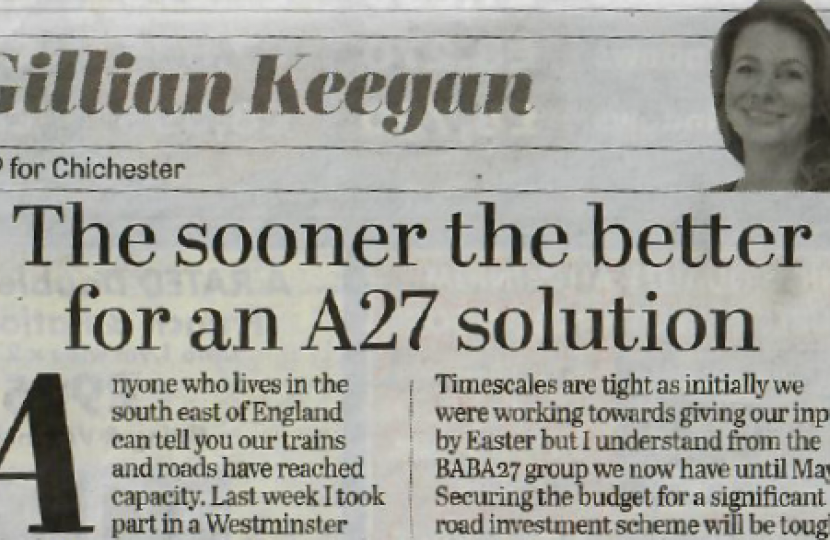
Anyone who lives in the south east of England can tell you that our trains and roads have reached capacity. Last week I took part in a Westminster Hall debate centred around a new body called Transport for the South East (TFSE), which was formed in the summer of last year. It brings together 16 local authorities and five local enterprise partnerships, stretching from Kent to Hampshire and from Berkshire to the Isle of Wight. The idea behind this body is to come up with ways to improve the transport network across our area, by working together to find strategic transport improvement schemes.
The debate was held so MPs could show their support for this new body, hoping that soon it will achieve statutory status and will become an official partner of the Government, Network Rail and Highways England. The idea has been used in other areas, in the north a similar group has already received £50million, so this will be worth it!
In Chichester we have first-hand experience of why it is important that big infrastructure decisions are agreed with local communities. The A27 is a good case in point. We are currently working to develop a local solution with the Build a Better A27 group This is a process I support as it is important the local community continue to work together to find a sensible solution. Timescales are tight as initially we were working towards giving our input by Easter but I understand from the BABA27 group that we now have until May. Securing the budget for a significant road investment scheme will be tough as there are many competing projects. My feeling is that the sooner we can come to an agreed solution the better our chances of securing investment in the next budgeting round which is for the period 2020 to 2025.
Last week also marked two years of RMT strikes on our trains. The union announced more strikes in May on several lines including South West, but fortunately not on Southern Rail, a line which has already suffered 40 days of industrial action. During the most recent strike day Southern managed to maintain more than 90% of its normal service as many employees ignored calls to strike and turned up to work and all Southern managers are now trained to fill in as onboard staff. This is not to say the service is at its best. More needs to be done to overall improve the service, and invest more widely in rail infrastructure on our line, a point I raised in the debate last week.
Although outside scope of TFSE, we mustn’t forget the importance of local transport links like bus routes and cycle paths within the transport mix. Just two weeks ago I cycled on the Centurion Way from Chichester to Lavant to see for myself how cycling is integrated into future transport plans.
